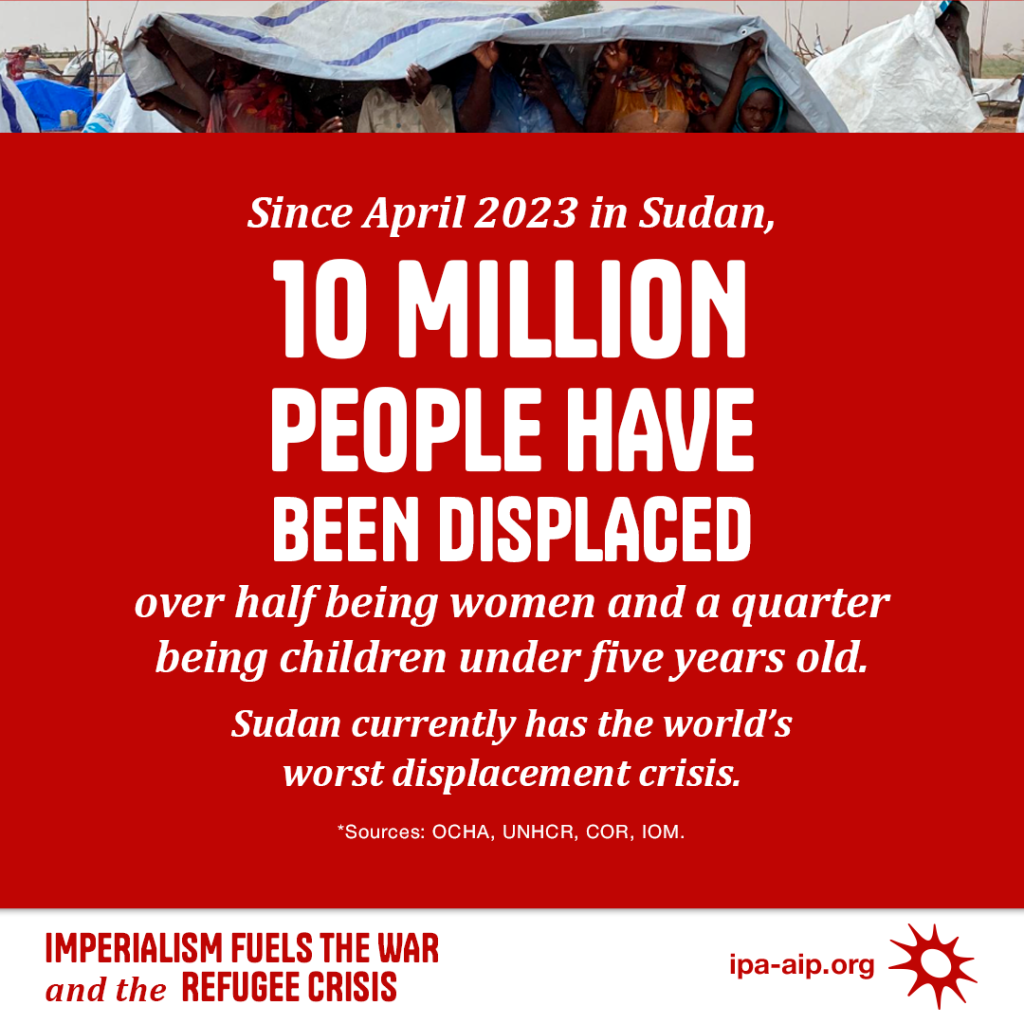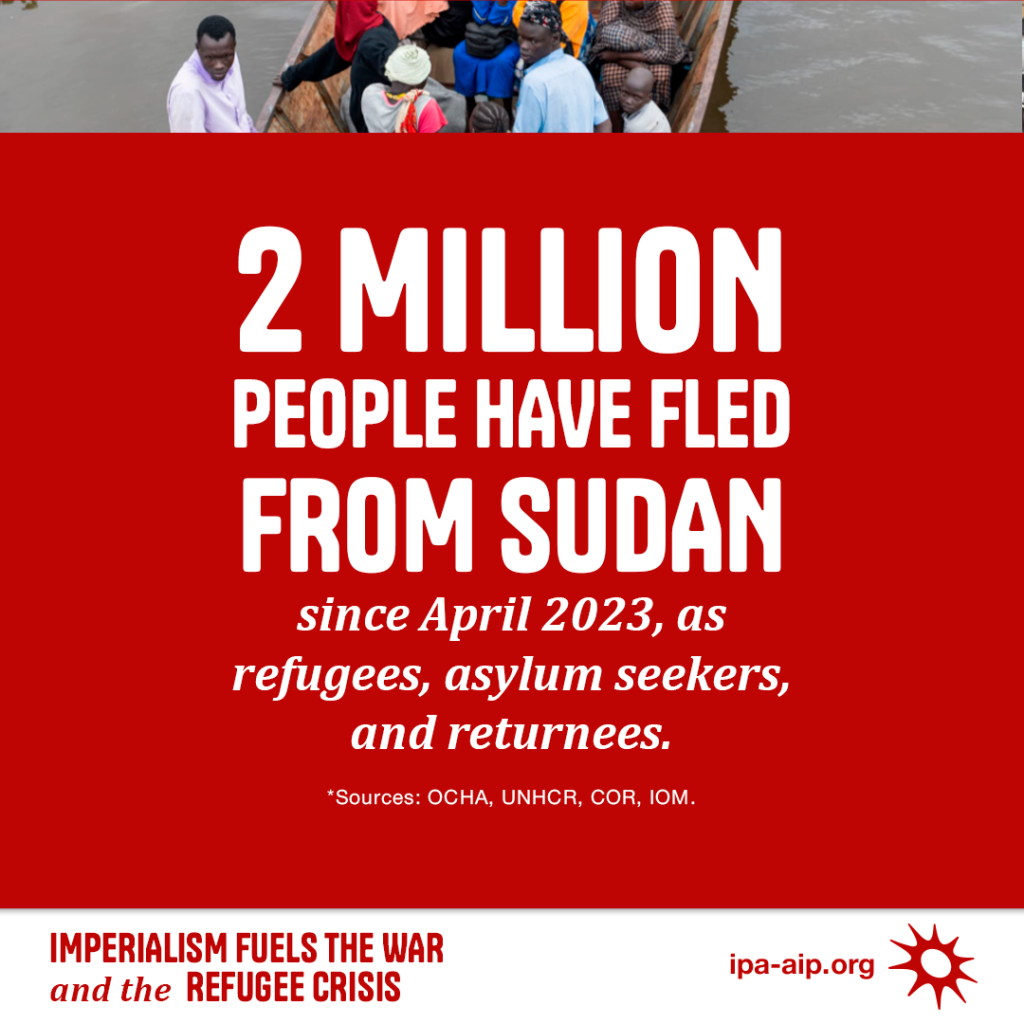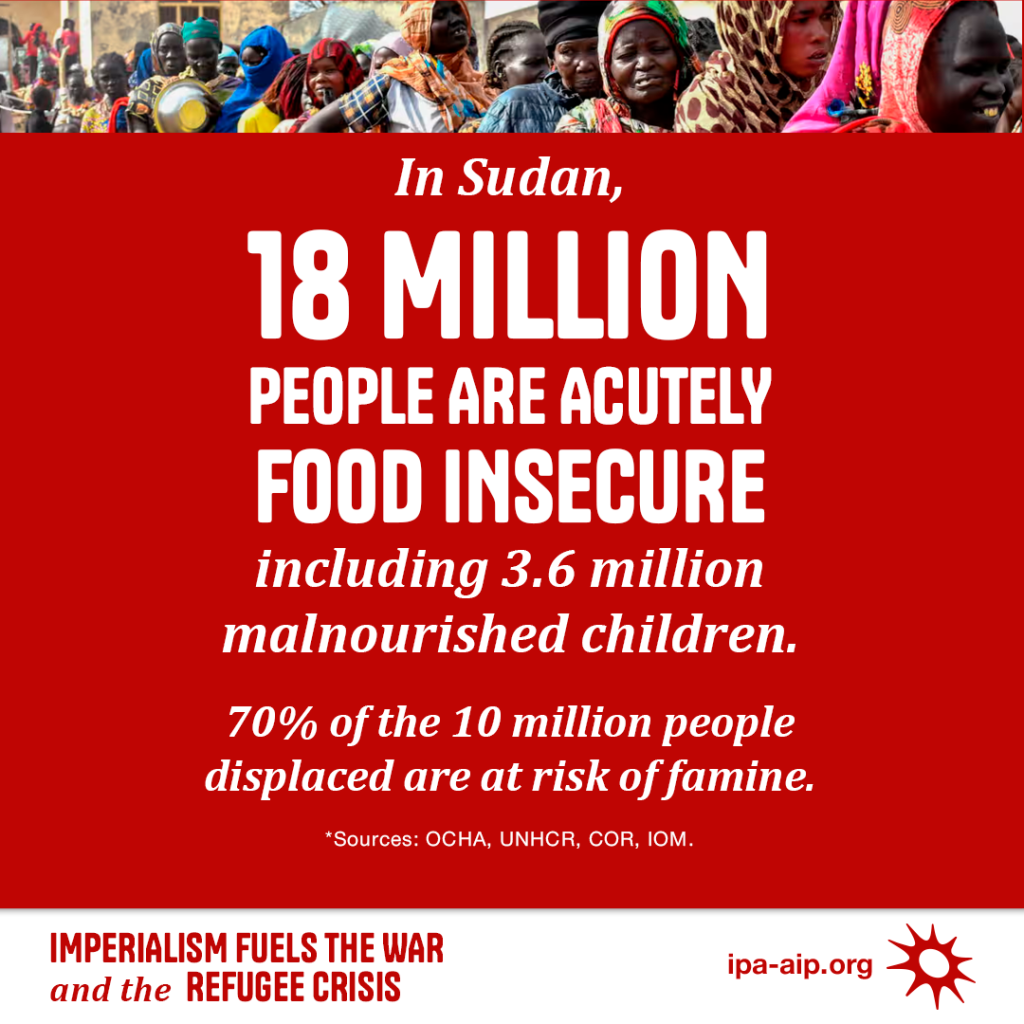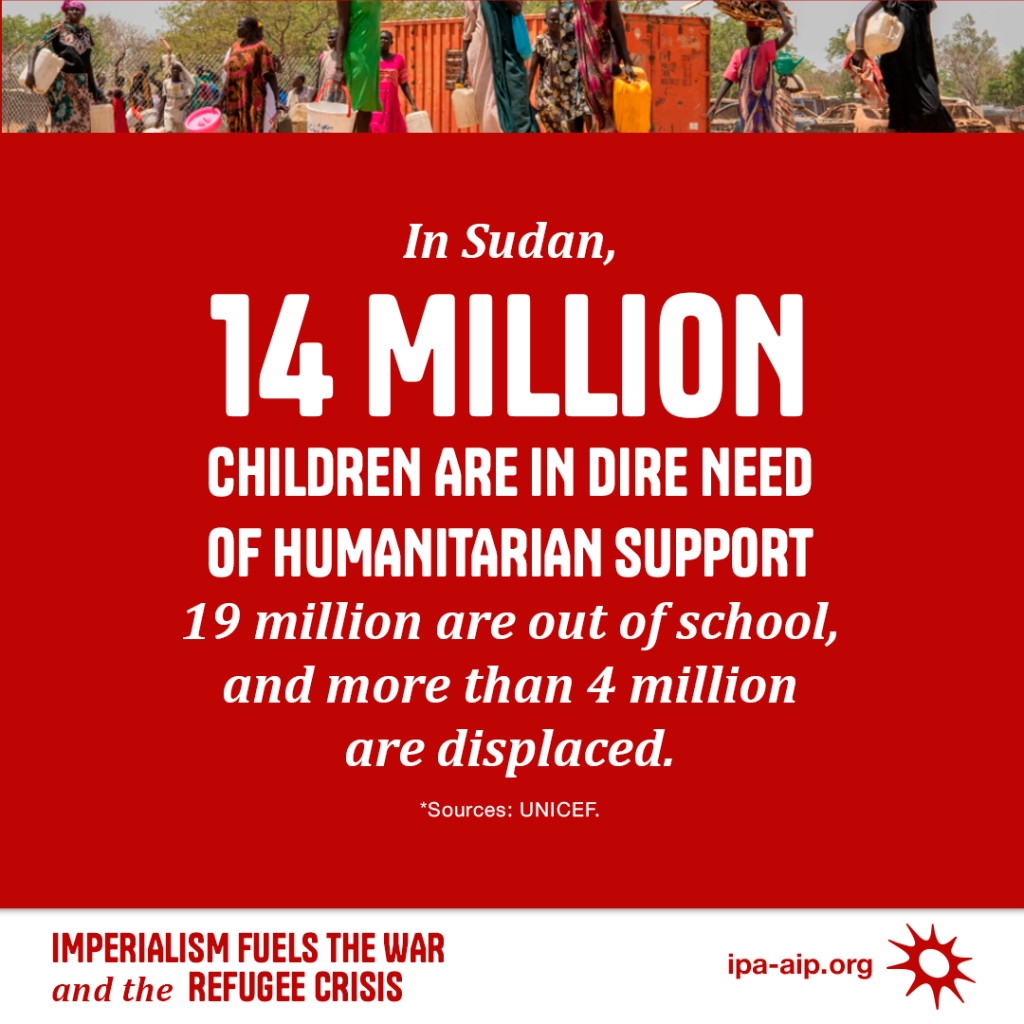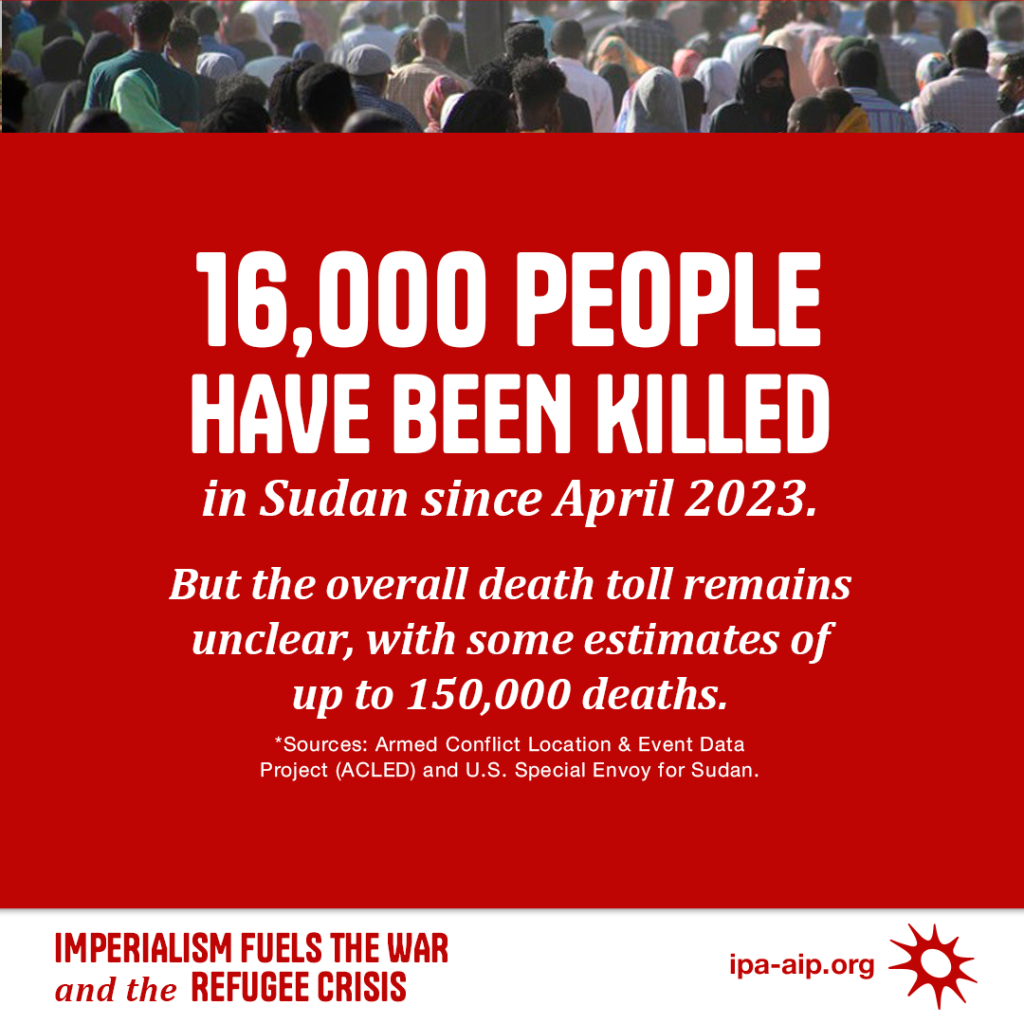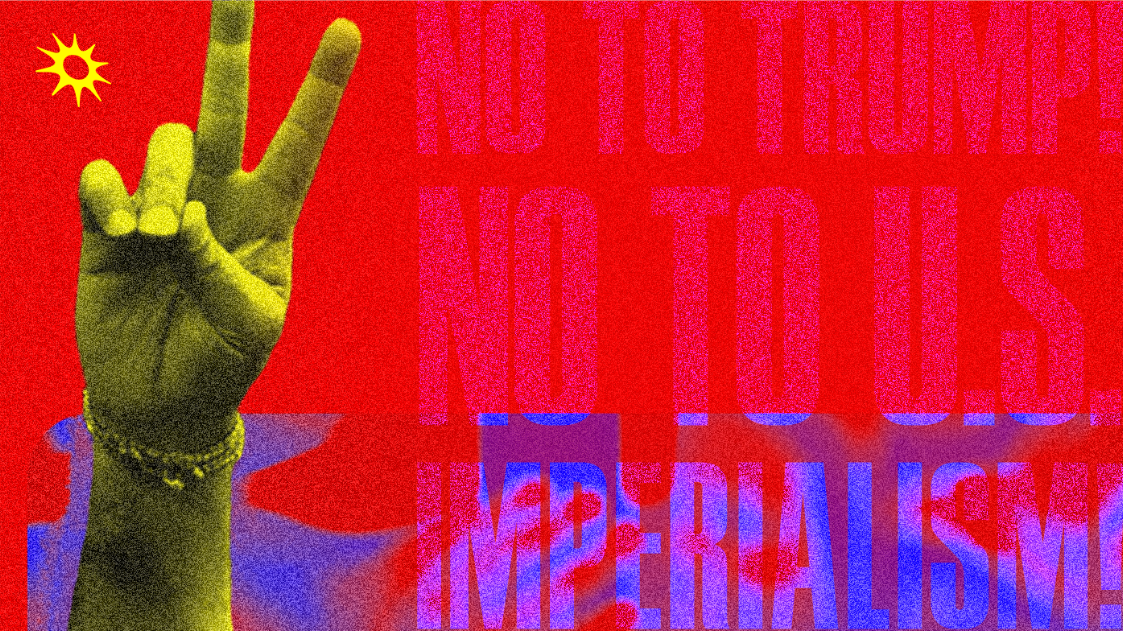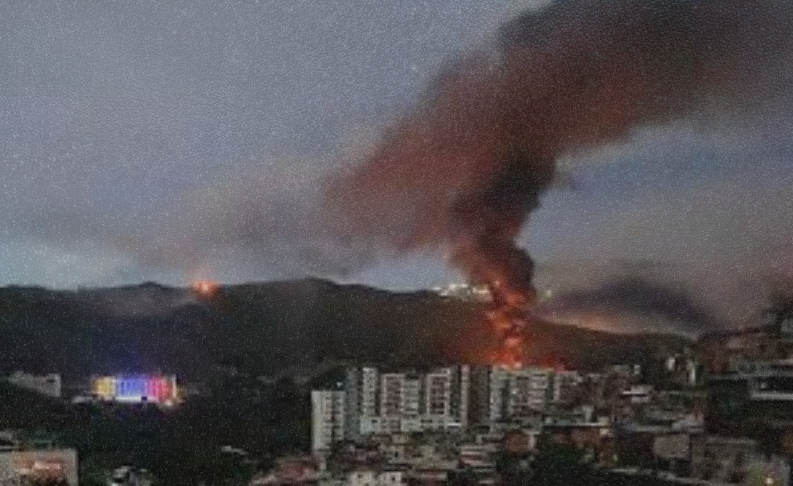WAR IN SUDAN
Imperialism fuels the refugee crisis
Sudan currently faces the world’s worst displacement crisis. More than 10 million people have been displaced since April 2023, over half being women and a quarter being children under five years old. 70% of those displaced are at risk of famine. Around 2 million people have fled from Sudan since then, as refugees, asylum seekers, and returnees, and much more are internally displaced and are suffering the extreme violence of this brutal war. This is a catastrophic scenario and huge humanitarian crisis affecting Sudan’s 49 million people.
It has been more than a year since the Sudanese people began suffering the violence and devastation wrought by the civil war that erupted on April 15th, 2023, between the country’s armed forces and the Rapid Support Forces. The ongoing bloodshed cannot be justified and must end. The conflict has been caused by competing interests over the control of resources (such as oil reserves, gold, chromium, copper, among others) which belong to the Sudanese people. Foreign actors support competing forces in the hopes of gaining access to said resources, in an effort to shore up their strength. This type of dispute is symptomatic of a global context marked by the kind of instability, violence and absence of global governance that is associated with US imperialism.
Since the uprising started in December 2018, the Sudanese people have been fighting to make real change that guarantees peace, freedom, and justice. This led to the beginning of a revolutionary process, which was interrupted by this brutal war.
While there is no prospect of an internal political solution to end the suffering of the Sudanese people, the international community is responding to the situation with reports and statistics that don’t impact the realities on the ground. The only solution to the current conflict involves an assertive decision from powers outside of Sudan to cease providing weapons or military support to either side.
The context of instability and violence in the world is a result of US imperialism, which, in addition to stimulating the massive production of weapons, also intensifies regional disputes and tensions among power factions, as seen in Sudan and other regions.
The most important path for peace is to legitimize political actors which include social movements, trade unions, and political parties that must be actively involved in the transition to peace and democracy. Negotiations and agreements only involving the same political actors that have been at the root of the war and decades of undemocratic rule will only result in protracted conflict, of which the Sudanese people are the primary victims.
The International Peoples’ Assembly is firmly in solidarity with the struggles for peace, sovereignty, democracy and a people’s government in Sudan. We call upon all the progressive forces and people in the world to support the Sudanese struggle and their revolutionary forces, by launching solidarity campaigns, producing and sharing informational and educational materials, and putting pressure on our governments not to recognize the coup regime.
